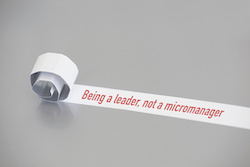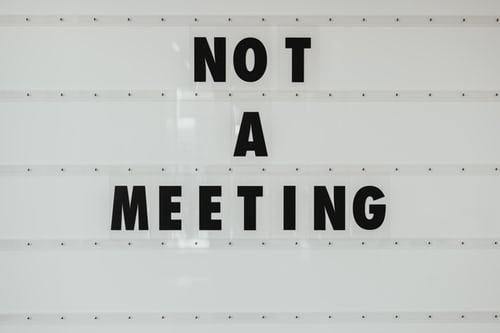
Angst om de zekerheid van je baan te verliezen; rationeel of irrationeel?
Wednesday 20 November 2024 hits: 4726

Deze maand vier ik mijn 20-jarige jubileum als coach!
Dit jubileum deel ik graag met jullie omdat ik zo dankbaar ben dat deze jaren, als zelfstandige, mij zoveel hebben gebracht.
Thursday 24 October 2024 hits: 3232
Bore out? Don't grab your phone but grab this time as an opportunity!
My client: “I don't know my next step. Currently, my job is easy, and I can do the work in less time than I am being paid for. I am being bored.”
Tuesday 24 September 2024 hits: 5138
Ben jij een micromanager?
Professionals worden gek van mircromanagers.
“Zo leren we toch niets meer”, hoorde ik twee mensen op de fiets tegen elkaar zeggen.
“ Ik ga op zoek naar een andere baan.” Jammer, denk ik. M’n handen jeuken om met de betreffende manager in gesprek te gaan.
Micromanagers weten allang dat ze controle houden en dat ze een control freak worden genoemd. Het in controle willen houden van taken is een onbewust gedrag. Veelal ontstaan uit de angst en het niet vertrouwen van het loslaten of het overlaten aan anderen. Heb jij deze gedachtes ook?

Workplace wellness- less burnouts
When employees are put in a high-stress situation — whether from unclear expectations, unreasonable deadlines, or a hectic workspace — they are at risk of moving into fight or flight mode. This is something that happens to our bodies when we feel threatened. The primal, more emotional, parts of our brain takes over, and our ability to think long term, strategize, and innovate decreases. If we stay in this mode too long, eventually, we get burned out. Below read the 14 most important tips for managers to help prevent burn-outs.
Thursday 05 September 2024 hits: 4870
Werk loslaten tijdens de vakantie?
Vakantietijd is tijd om te ontspannen, lukt dat? Of is het ook tijd om na te denken wat anders te doen in het komende jaar. Het begint met terugkijken. Waar kreeg je energie van en wat kostte je energie? Maak een analyse wat dit zegt over je ontwikkeling? Houdt dit je groei tegen? Wat maakt je nog nieuwsgierig en hoe vertaal je dit naar je huidige werk of naar een andere baan? Past je huidige rol je wel? Wat is er nodig om deze te veranderen? Met wie kun je hierover spreken? Hoe bereid je dit gesprek voor? Hoe houd je de regie en het gesprek gelijkwaardig? Het helpt om alles uit te schrijven en te bepalen wat de eerste stap wordt na je vakantie. Dit lichtje in de tunnel maakt de resterende tijd nog ontspannender. Geniet!

Why self-reflection works!
I agree with Irvin Yalom, when he says: ‘If we do not fully understand ourselves, we do not fully understand others and cannot create a full relationship, in life and work ‘.
Monday 27 May 2024 hits: 6813
Vasthouden aan ons verleden gaat vaak ten koste van onze groei!
Loslaten is een makkelijke term en kom ik in de coaching regelmatig tegen als vraag. Maar tips om los te laten helpen niet bij het loslaten. Die oplossingen hebben we natuurlijk al vele malen zelf geprobeerd. Door het vasthouden zelf te analyseren en de antwoorden op te schrijven kunnen we bepalen wat er nodig is om te veranderen. De vraag die ik hierover aan klanten stel is: " Wat maakt dat je vast moet houden? " We doen niets als het ons niet iets oplevert. Dus er moet een reden zijn om vast te houden aan het verleden.
En de volgende vraag is: " Wie ben je zonder deze houvast? "

Leadership & Empathy
My client manages a team and finds it hard to be very interested in the personal lives of some of his direct reports. “I do not need to know what they do on the weekends. But my boss tells me that I must show more empathy.”
Thursday 14 March 2024 hits: 8184
Annoyed or irritated too often?
"My energy is being drained by my co-worker's behavior. How do I learn to deal with this?" This question leads in the coaching to the following assignment:
= Analyze your irritation and let's see if you recognize a common thread.
Irritation can be a mirror to self-reflection.
Pagina 3 van 18



